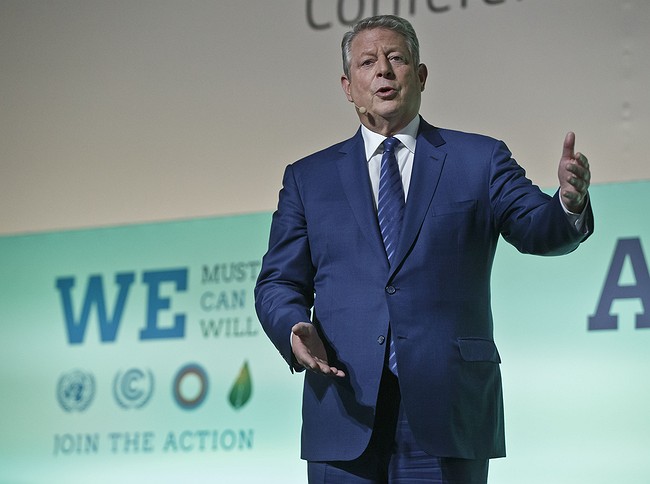-
Tips for becoming a good boxer - November 6, 2020
-
7 expert tips for making your hens night a memorable one - November 6, 2020
-
5 reasons to host your Christmas party on a cruise boat - November 6, 2020
-
What to do when you’re charged with a crime - November 6, 2020
-
Should you get one or multiple dogs? Here’s all you need to know - November 3, 2020
-
A Guide: How to Build Your Very Own Magic Mirror - February 14, 2019
-
Our Top Inspirational Baseball Stars - November 24, 2018
-
Five Tech Tools That Will Help You Turn Your Blog into a Business - November 24, 2018
-
How to Indulge on Vacation without Expanding Your Waist - November 9, 2018
-
5 Strategies for Businesses to Appeal to Today’s Increasingly Mobile-Crazed Customers - November 9, 2018
Final draft of Paris climate agreement reached
The speed with which the draft was created suggests good progress, but it is likely to have many points that countries will want to negotiate.
Advertisement
Although the approval represented a significant development, the deal was far from done as the draft was filled with competing options, meaning the negotiators still face the task of resolving key points of disagreement in what is envisioned as a lasting global pact to combat climate change, the Associated Press reported.
With the United Nations Climate Change Conference, or COP21, reaching the midway point of its run between November 30 and December 11, the draft of the agreement was passed along to environment and foreign ministers who will continue working on it next week. But the plans fell short of the target of limiting temperature increases this century to 2 degrees Celsius above preindustrial levels, the threshold at which scientists believe most of the worst effects of climate change could be avoided. Meanwhile, more than 100 countries, including 48 members of the least-developed countries (LDC) group, will propose a global target of 1.5˚C.
“All the hard political issues remain unsolved and will be solved by the ministers”, European Climate and Energy Commissioner Miguel Arias Canete said.
“This text marks the will of all to reach an agreement”.
“This is an issue that we need to deal with if we care about the impact on future generations”, he said. France and China have said they want the entire document to be legally binding.
Senator Ben Cardin of Maryland said at a news conference Saturday that the group was “determined to make sure that Paris is a successful conference, and that we will see a day where we can meet the goal of reducing the damage that we’re doing to our planet”. “So it’s heavily bracketed text, but they have made enough progress to pass it onto the conference of of the parties themselves”.
Chief Chinese negotiator Su Wei told reporters Saturday that “all the provisions, starting from the preamble to the final clauses, would be legally binding”. “Some elements are probably going to be internationally legally binding and some are going to be domestically legally binding”, she said.
After the news conference he indicated the issue was still up for negotiation.
“We had hoped that our work would be further advanced”, said Nozipho Mxakato-Diseko of South Africa, who speaks on behalf of more than 130 developing nations.
Negotiators from 195 nations raced Saturday to complete a four-year mission by delivering a blueprint to secure humanity from the consequences of rampant emissions of climate-altering greenhouse gases. Binding emissions cuts would likely require the Obama administration to send the deal to the Republican-controlled Congress, where it would likely be struck down.
While climate negotiations are largely about diplomatic wrestling, the reluctance to put in place a sound transparency system to track green goals at home could well explain why the country’s smog crisis just won’t go away. “That’s a general rule of global treaty laws. There’s no doubt about that”. Since they started in 1992, the United Nations talks have not been able to stop the rise in emissions, mostly from the burning of fossil fuels, blamed for warming the planet.
Small countries, particularly island states in danger of being swamped by rising seas, have been pushing for developed nations to contribute significant amounts of cash to compensate them for “loss and damage” caused by warming.
On Thursday, China joined other developing countries in mounting harsh criticism of industrialised nations trying to escape their funding obligations for poor countries.
Advertisement
The developing bloc says the parts of world that industrialized first – the U.S., Canada, Europe, Japan, Australia and New Zealand – have an historical responsibility to address climate change.





























